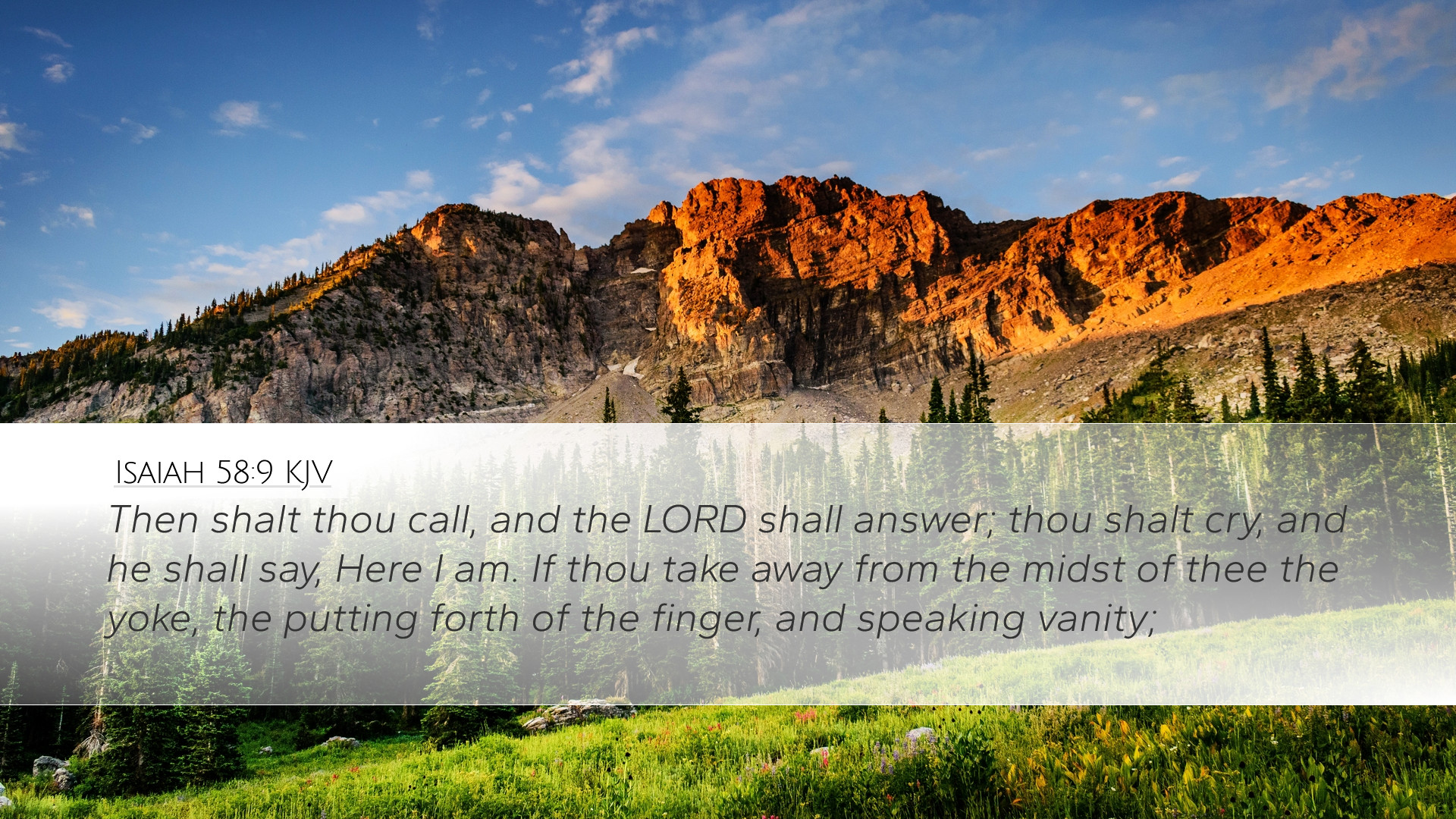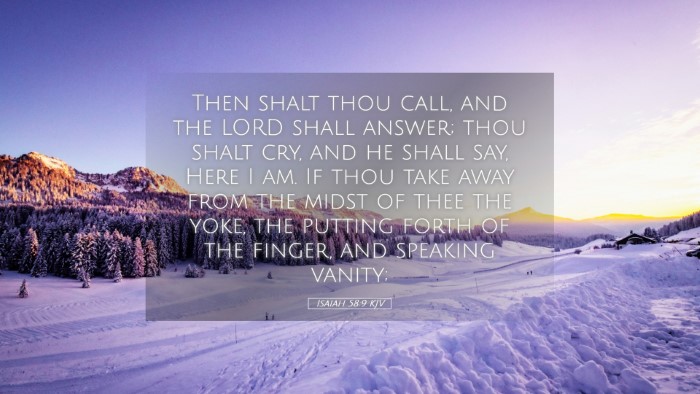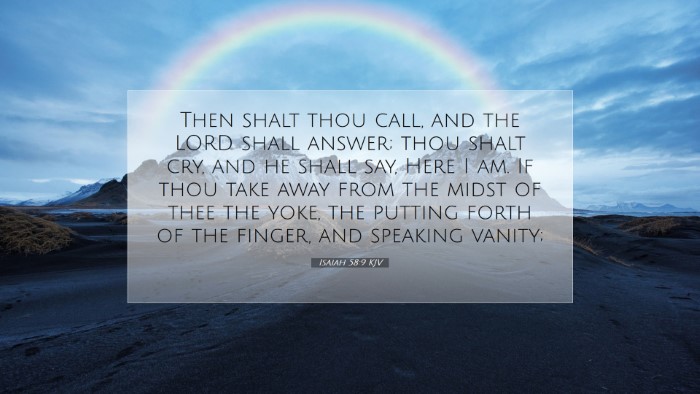Commentary on Isaiah 58:9
Verse: "Then you will call, and the LORD will answer; you will cry for help, and he will say: Here am I. If you do away with the yoke of oppression, with the pointing finger and malicious talk." (Isaiah 58:9, NIV)
Introduction
This passage from Isaiah is part of a broader discourse on genuine fasting and true worship in the sight of God. It addresses the discrepancies between the Israelites' practices and God's expectations. The verse promises divine responsiveness from God, contingent upon the people's genuine repentance and commitment to social justice.
Overview of Commentaries
Insights from public domain commentaries provide a multifaceted understanding of this verse. We draw especially from the works of Matthew Henry, Albert Barnes, and Adam Clarke, whose reflections illuminate the spiritual implications and societal responsibilities outlined in Isaiah 58:9.
Matthew Henry's Commentary
Matthew Henry emphasizes the conditions under which the Lord will respond to the cries of His people. He notes:
- The Assurance of God's Response: The phrase "Then you will call, and the LORD will answer" assures the faithful that their prayers will not go unheard. This expectation of divine interaction is central to genuine faith.
- Evidence of True Repentance: Henry points out that authentic appeal to God must be coupled with an earnest effort to remedy injustice. The call for justice echoes a core tenet of biblical ethics: God desires not only worship but righteousness.
- Rejection of Oppression: The "yoke of oppression" represents societal injustices. Removing such burdens implies active participation in uplifting the marginalized, aligning worship practices with ethical living.
Albert Barnes' Commentary
Albert Barnes offers a theological reflection on the implications of this verse:
- Response and Presence of God: Barnes interprets "Here am I" as an affirmation of God's proximity to those who seek Him earnestly. It symbolizes not just a physical nearness but emotional and spiritual readiness to assist.
- Actions Reflecting Faith: Barnes emphasizes that the actions of the faithful should mirror their pleas to God. If one truly seeks divine assistance, it requires the abandonment of harmful behaviors, including oppression and slander.
Adam Clarke's Commentary
Adam Clarke provides detailed analysis on the relational aspect between humanity and God in this verse:
- The Nature of Divine Communication: According to Clarke, God's willingness to respond illustrates a deep relational dynamic. It is not merely transactional but relational, fostering intimacy between the Creator and His creation.
- The Ethical Call to Justice: Clarke highlights the necessity of ceasing "the pointing finger and malicious talk," suggesting that true spirituality must be manifested in ethical behavior toward others. This is a call to personal and communal integrity.
Theological Implications
The implications of Isaiah 58:9 extend beyond individual spirituality to encompass collective responsibility and ethical obligations:
- Practical Faith: True faith is demonstrated not only in devotion but also in the pursuit of justice. Believers are called to engage actively in societal issues, dismantling the systems that contribute to oppression.
- Covenantal Relationship: This verse reiterates the covenantal nature of God's relationship with His people, where divine expectation incorporates moral living alongside spiritual practices.
- The Role of Prayer: Prayer is positioned not as a means to gain personal advantage but as a communal appeal for justice and need, reflecting a genuine connection to the Creator.
Practical Applications
For pastors, theologians, and students, the teachings of Isaiah 58:9 can inform both personal and corporate worship practices:
- Encouraging Repentance: Pastoral teachings should guide congregants toward self-examination, prompting them to consider how their lives reflect the principles of justice and mercy.
- Advocacy for the Marginalized: Churches can take a more active role in advocacy, engaging in community service and outreach initiatives that promote justice and equity.
- Prayer as a Means of Divine Interaction: Promote prayer not merely as a ritual, but as a means to seek God's heart in matters of injustice and societal oppression.
Conclusion
Isaiah 58:9 offers profound insight into the nature of God’s desire for a holistic relationship with His people, urging them to pursue justice and righteousness. By synthesizing insights from Henry, Barnes, and Clarke, we gain a deeper understanding that challenges not only individual spirituality but also collective responsibility in living out the teachings of Christ.


